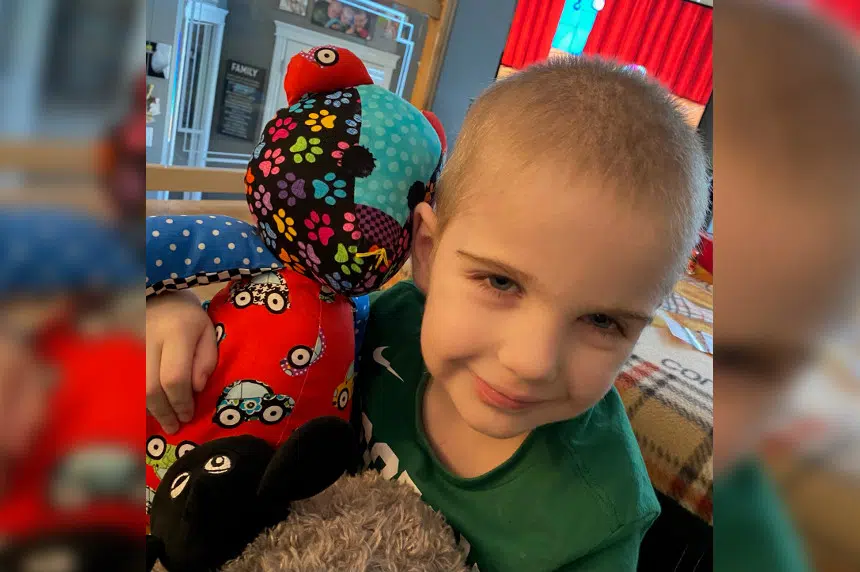After more than a year of fighting with Saskatchewan’s Ministry of Health, the Finn family will now be reimbursed for the hundreds of thousands of dollars they spent on lifesaving health care for their son.
Last year, Kirsten Finn and her husband found out their then-four-year-old son Conner had adrenoleukodystrophy, or ALD.
It’s a degenerative genetic disease that can be particularly bad for kids.
Finn said there aren’t any specialists for the disease in Canada and waiting for approvals and referrals would have taken precious time out of the small window for treatment that Conner had, so they went directly to a specialist in Minnesota.
“To just sit around and wait, knowing that at any day you just fall out of that window and you can’t even pursue any treatment altogether was devastating for us,” said Finn.
The Finns had to liquidate their retirement savings to pay for the treatment. At the time it was more than $1.1 million, but ended up being around $823,000 when it was all said and done.
“We’re older parents, we started our family late and so we just simply couldn’t take that risk with his life,” explained Finn.
Often, when a Saskatchewan citizen has to go out of the province for health care, the provincial government will pay the expenses. But for the last year, the Finns have been fighting with the government to get their expenses paid.
The government had denied them multiple times, even when the Health Services Review Committee recommended the province reconsider that decision.
On Monday, however, after more lobbying from the Finns and the NDP, Health Minister Paul Merriman announced the province would reimburse the Finns.
“I was quite anxious and nervous before the meeting and when he gave us the news I was shocked. It has been a long year and a half for us and I wasn’t sure exactly what was going to happen so, yeah, we’re actually quite shocked about it,” Finn said with a laugh.
Merriman only said he had been given new information. Finn said the minister had finally agreed to talk to her son’s specialist in Minnesota.
“We’ve sort of been fighting for a long time for (the government) to speak with Dr. Lund, and they had refused to do so up until this point,” said Finn.
In that meeting, Finn said Merriman also indicated an interest in looking into creating a rare disease strategy to improve processes going forward, as well as allowing the Finns to provide some input on that.
Speaking to the media later, Merriman said he had wanted to take the time to make the right decision, and he didn’t regret the original decision to not reimburse the family. He noted it was the right decision with the information he had at the time.
During that meeting, Merriman did not offer an apology to the Finns for what they had gone through. Finn said she would have liked one.
“Having to fight for your son’s own medical records, having to go forward with this again and again and again, and launch complaints with the ombudsman and the human rights commission, and to have all those kind of roadblocks in your way – it would have been nice to have had that (apology),” she said.
“But at the end of the day I’m still grateful and if this could be of any benefit to a family going forward, we’re very grateful for that.”
These days, Conner is doing well. Finn said because they got his treatment within the narrow window, they managed to halt the progress of the disease in his brain.
Conner does have an area of brain damage, and there are some risks later in life, but Finn said it’s the best outcome they could have hoped for.







